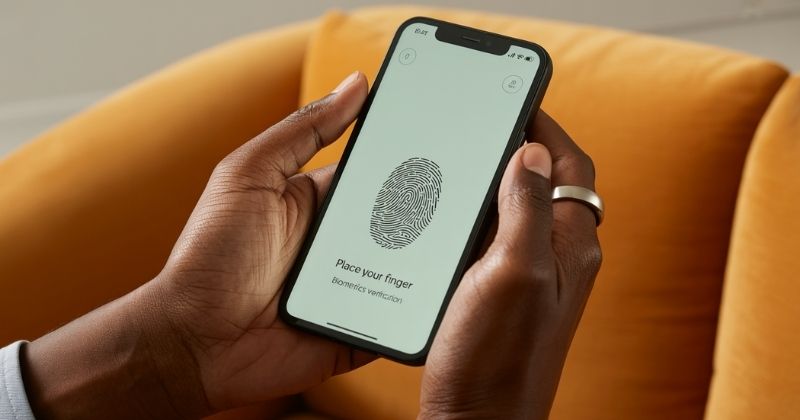
The introduction of new smartphone verification protocols for the 2025 Social Relief of Distress (SRD) grant has triggered significant criticism from both opposition political parties and civil society organisations. Many are calling the requirement unreasonable, especially in light of the stringent eligibility threshold, which limits monthly bank balances to below R624 for applicants. This threshold barely covers the cost of basic necessities such as food, electricity, and transport, let alone digital tools. The measure is being described as disconnected from the reality faced by those living in poverty.
Key Takeaways
- New Smartphone and Smart ID Requirements: From 7 June 2025, all SRD grant applicants must undergo biometric verification using both a smartphone and a smart ID card, making it harder for low-income individuals, especially those with older ID books or no internet access, to qualify.
- Criticism from Courts and Civil Society: The High Court previously ruled that SASSA could not deny applicants based on budget limitations, but the agency has chosen to appeal and continue implementing restrictive policies, prompting backlash from political parties and advocacy groups.
- Widening Digital Divide: The requirement for digital tools like smartphones and internet access is intensifying South Africa’s digital inequality, leaving many eligible grant recipients without practical means to apply for or manage their social grants.
About Arcadia Finance
Get your loan the easy way with Arcadia Finance. Pay no application fees and choose from 19 trusted lenders, all registered with South Africa’s National Credit Regulator. Enjoy a fast, hassle-free process with loan options designed around your financial goals.
Mandatory Biometric Process Starts from 7 June 2025
From Saturday, 7 June 2025, all individuals applying for the SRD grant are required to complete a biometric verification process. This change has been rejected by the Democratic Alliance and other advocacy groups, who argue that it is unrealistic to expect those receiving the R370 monthly SRD grant to maintain consistent access to smartphones, let alone afford data or connectivity. The cost of data bundles alone often exceeds R100 per month; an impossible luxury for many applicants. Concerns are growing that the new procedure imposes additional hurdles for South Africa’s most vulnerable.
Earlier this year, the South African Social Security Agency (SASSA) came under fire for its policies when the High Court ruled in January that the agency could not deny qualifying applicants on the basis of limited budget availability. Despite the ruling, SASSA has chosen to appeal the decision and is reportedly continuing with policies that appear to restrict access to grants through increasingly stringent requirements. Critics argue that the agency is persisting with measures that unfairly sideline those in desperate need. This defiance of the court ruling has sparked concern over whether state agencies are undermining judicial authority in favour of cost-cutting.
If you are dealing with delays in receiving your grant because of system issues or technical changes, read Why Your SASSA Grant Might Not Arrive on Time This June for clear advice and practical steps to help you understand what is causing the delay and how to move forward.

Digital Verification and Grant Management Through New Portal
As the Department of Social Development intensifies its reliance on digital systems, access to the 2025 SRD grant has become more complicated for those without digital tools. The government has introduced the SASSA Services online portal, which enables applicants to upload personal documents such as ID photos directly from their smartphones. While the platform offers free USSD services and status checks, it has also faced regular technical issues, leaving many without access during critical periods. In some areas, repeated outages and glitches have rendered the system completely unusable for days at a time, adding to applicant frustration.
Smart ID Cards Now a Mandatory Requirement
SASSA’s latest directive clearly states that a smart ID card and smartphone are now both required for successful verification. Applicants using the older green barcoded ID book are expected to face rejection during the process, due to the lack of a digital photograph on record with the Department of Home Affairs. This stipulation is especially problematic for older applicants and rural residents, many of whom have not transitioned to the newer smart ID system. The process to upgrade ID documents can involve long queues, costly transport to Home Affairs offices, and administrative delays lasting months.
Rationale Behind Biometric Verification Sparks Controversy
While SASSA has justified the biometric process as a necessary step to prevent fraud, corruption, and identity theft, its practical consequences are under scrutiny. The agency insists the process protects the integrity of the social grant system, yet critics argue it deepens the divide between those who have access to digital tools and those who do not. The SRD grant is intended for individuals living in extreme poverty, all of whom must prove they earn less than R624 per month, raising serious doubts about how they are expected to afford smartphones or internet access. This could result in tens of thousands of eligible applicants falling through the cracks due to no fault of their own.
Those struggling to navigate official websites or app-based systems can instead apply for the R350 grant on WhatsApp with just basic data access.

Applicants Struggle Ahead of June SRD Payouts
With SRD grants for June 2025 scheduled to be paid during the final week of the month, numerous complaints have already been received by SASSA customer service units. Many applicants report failing the verification process due to lack of access to digital resources or documentation. The Democratic Alliance has pointed out that these new rules serve to marginalise individuals already on the fringes of society, further limiting their access to essential financial support. Community centres in informal settlements report growing queues of distressed residents seeking assistance, often with no resolution in sight.
Ongoing Exclusion of Vulnerable Groups Highlighted by Opposition
Opposition parties have called for immediate intervention and support mechanisms to assist those unable to meet the new requirements. They argue that rather than expanding access to social grants, SASSA continues to impose layers of administrative barriers that disqualify deserving applicants. There are renewed calls for the deployment of volunteers and the introduction of offline alternatives to ensure inclusivity and equitable access to the R370 monthly SRD grant. Failure to act, they warn, could lead to increased social unrest as desperate individuals are denied what little financial support they qualify for under the law.
Conclusion
The 2025 SASSA SRD grant verification process has sparked nationwide concern, highlighting the tension between fraud prevention efforts and the accessibility of public services for the country’s most vulnerable. As biometric verification becomes mandatory, many applicants face exclusion due to digital and bureaucratic barriers they cannot overcome. With mounting pressure from civil society and political opposition, SASSA may need to reconsider its approach to ensure that essential financial support remains within reach for those who need it most.
Fast, uncomplicated, and trustworthy loan comparisons
At Arcadia Finance, you can compare loan offers from multiple lenders with no obligation and free of charge. Get a clear overview of your options and choose the best deal for you.
Fill out our form today to easily compare interest rates from 19 banks and find the right loan for you.


